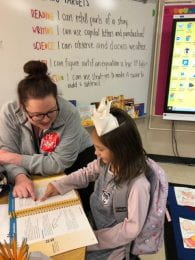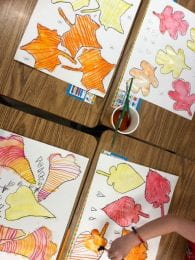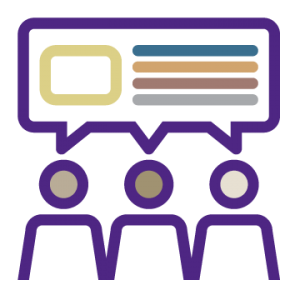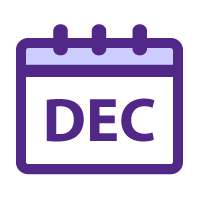Lori Goodson, Editor
Mary Hammel, Technical Editor
Category: November 2019
Come on back! Register NOW for great PD at KSU
There’s still time to register for an amazing professional development opportunity while reconnecting with your KSU College of Education family on Nov. 20 at the KSU Alumni Center!
Join author and teacher Kayla Delzer in an interactive workshop, “Relationships, Relevance, Responsive Culture, Rigor, Results,” designed to revitalize learning, relationships and the classroom environment. She explains how to release the power in the classroom by giving students ownership of their learning and making it relevant to them. Breaking down the four walls of the classroom allows her students to become globally connected – and you won’t believe the endeavors her students conquer by embracing leadership skills and purposeful technology.
Delzer is the 2019 North Dakota Teacher of the Year, as well as a two-time Global Hundred honoree, recognizing her as 1 of the top 100 innovative educators in the world. The New York Times named her “one of the tech-savviest teachers in the United States.” Her work with classroom redesign and flexible seating has become the standard worldwide. She is currently writing a book about classroom learning spaces and flexible seating, titled FlexED: Flexible Seating for Flexible Learners, set to release in 2019. She is also a co-author of the best-selling book Education Write Now, published in December 2017.
Agenda
8:30 a.m. Registration and Coffee, K-State Alumni Center
9:00 a.m. Session Begins, K-State Alumni Center
11:30 a.m. Lunch
12:30 p.m. Resume Session
2:00 p.m. Closing and Evaluations
To register, visit CPSI or call 785-532-5569.
We’re hoping to see you there!
In the Classroom: Aubrey Rumford

Name: Aubrey Rumford
School district: USD 475
City/State: Fort Riley, KS
Class/content area taught: First grade
What you are most excited about with your new career: Getting to watch my students grow throughout this year and seeing just how excited my students get when it comes to learning!
What you enjoy most about teaching: Watching my students share a love for one another/learning. My classroom is a “family-like” environment, so it has been really exciting to see just how wonderful everyone treats each other!
Ways your school/district has supported you: My school/district has been EXTREMELY supportive throughout my new teaching journey. They have reached out via email, visited my classroom to observe and guide my teaching, sent countless amounts of resources, held district level trainings, and more!
Ways KSU especially helped prepare you for your new career: Kansas State gave me the foundation for my teaching career. Whether it was learning how to write lesson plans, experience classroom management scenarios, or learning how to teach Math/Science/English content, I really felt that KSU gave me the tools to be a successful teacher, AND allowed me to have knowledge on how to handle certain situations in the workplace.

Specifics about your background that make teaching the perfect fit for you: I was fortunate enough to get the experience of 6 years working in schools before graduating with my teaching degree. I worked as a para for a variety of classrooms (Autism Dept. at Manhattan High School, Emotional/Behavioral Disorder classroom for 5th and 6thgraders, Severe and Profoundly Handicapped classroom K-6, General ed/special ed classrooms K-6, AND working as a lunchroom supervisor for K-6th grade. (4 different schools within the USD 383 district.)
I was able to see just how things worked (both inside and outside of the classroom.) Through this, I found that this has really helped me/prepped me for situations that have come up within my first few weeks of teaching.
Suggestions/encouragement for new teachers:You may not get the first school you applied for. You may not even get an interview, but PLEASE…do not give up the search. It took me multiple interviews/rejections to get to the school I’m at today, and I truly feel this was meant to be. Branch out, don’t lose hope, and DON’T compare yourself to others you graduated with. You’ll see others get jobs and feel defeated – I know I did. Please, do not worry! The right school, the right grade, AND the right opportunity will come your way!
Advice, help, cry sesh: AubreyRumford@usd475.org
Please, do not do this teaching journey alone.

Now and then in frustration
Waves of doubt roll over your beach
Of all choice occupations
Why did I decide to teach?
Then a look of “Now I Get It!”
Sweeps a face where once was doubt
And the ease of mounted tension
Makes you both just want to shout
As you review your answer sheet
On life’s test, you have no regrets
That you skipped over – Make a Million
And checked “Make A Difference”
-Clair Rumford
The do’s and don’ts of faculty meetings
 At this point, you’ve probably experienced a teaching tradition—which can’t be replicated anywhere else but within the walls of your school: The faculty meeting. You’ve probably attended two to three faculty meetings, and you’re trying to figure them out. We’ll try to address some of those burning questions you have about the ever-popular faculty meeting.
At this point, you’ve probably experienced a teaching tradition—which can’t be replicated anywhere else but within the walls of your school: The faculty meeting. You’ve probably attended two to three faculty meetings, and you’re trying to figure them out. We’ll try to address some of those burning questions you have about the ever-popular faculty meeting.
- Where do I sit? With my content teachers? My new friends? My mentor (who may or may not be my friend)? The faculty member who intimidates me the most? When you start teaching, sitting down at a faculty meeting will bring back visions of your life as a fifth-grader trying to find a spot on a school bus. Uncomfortable, humbling, awkward at best. Use the same approach you did then: Look for a smiling face—one that says “I’m not gonna steal your lunch money.” And maybe one that says, “Welcome, friend!”—only probably not quite so directly. At some meetings, you’ll find it beneficial to sit with those who are teaching similar content or age group as you; other times, by all means go with the most welcoming faces.
- How much should I say at these meetings? Should I speak my mind? There is no magic rule about this, though you’re encouraged to observe for the first few meetings. Jumping in immediately with your ideas can be a risky move, no matter how earth-shatteringly amazing you believe your ideas are. Often, as a new teacher, it’s best to quietly share your ideas with a colleague, who can help you avoid any issues that may have existed long before you joined the faculty.
- How do I deal with the colleague’s running commentary throughout the meeting? Well, smiling is always a good response—it’s neutral, not too supportive, not too negative. You’re new here, so take some time to figure out the power structure of the faculty. In time, you’ll know when it’s OK to laugh out loud and when it’s time to focus on—or at least pretend to—taking more notes about the topic at hand.
- My personal favorite: The principal provided doughnuts! How many should I take? I’m starving! Start with one…then, when there’s a heated discussion about students chewing gum in class, grab another one! Remember…pace yourself!
Don’t get us wrong; often faculty meetings can be beneficial—coming together in times of tragedy, celebration, and innovation. It’ll just take some time to figure out the key players and your role in these sessions.
Tips for surviving the workload
A few of your favorite faculty members provided tips on how to manage the workload (grading papers, etc.) without sacrificing quality.
Dr. Vicki Sherbert (Secondary English/Language Arts, Speech/Theatre, Journalism)—“I learned early on to not “over grade” everything. If I made a writing assignment, learned to share with students what I would be grading this time (conventions, word choice, ideas & content). I learned to focus on one or two goals or objectives.”
Dr. Brad Burenheide (Secondary Social Studies)—“Little tricks to make it more efficient when grading (a separate answer sheet so you are only dealing with one piece of paper), answering emails in bunches.”
Dr. Todd Goodson (Secondary English, Speech/Theatre, Journalism)—“During your meetings before the beginning of the year, speakers called your attention to lots of important documents that you needed to know inside and out. You probably haven’t looked at them yet. They will be online, and after you have taught a few months, they might begin to make sense to you. Take some time to look back at things like the student and faculty handbooks, the district’s negotiated agreement with teachers, and any other policy document on the district web site. Bookmark them and drop in on them now and then. The longer you teach, the more they will speak to you.”
Celebrate the holidays and diversity
 Don’t look now, but it’s almost time to flip your calendar to 2020! That’s right – for all of you first-year teachers, you’ve almost made it through half a year as a teacher! Congratulations!
Don’t look now, but it’s almost time to flip your calendar to 2020! That’s right – for all of you first-year teachers, you’ve almost made it through half a year as a teacher! Congratulations!
As we move toward winter break, keep in mind that, while we may consider this the holiday season, that definition can vary from person to person. Among the celebrations are Christmas, Hanukkah, and Kwanzaa.
Remember that, while one holiday may be celebrated by the majority of your students, we all need lessons about other cultures, celebrations and traditions. Be sure to consider the diverse group of students you have in your classroom before saturating your room with decorations or items from one culture.
Use the time to open your students’ worlds to other classmates’ beliefs. Scholastic.com suggests creating travel centers to open their world. Check out their ideas at http://www.scholastic.com/teachers/lesson-plan/winter-holidays-celebrating-diversity. Another resource provides a teacher guide on how to celebrate winter holiday: http://www.scholastic.com/teachers/lesson-plan/celebrate-winter-holidays-teaching-guide. Such an awareness can bring a greater respect and appreciation and make our huge world just a little bit smaller…and friendlier.
Your favorite faculty offer some online support
 Are you looking for some valuable online resources for your students? Several Curriculum and Instruction faculty suggest the following:
Are you looking for some valuable online resources for your students? Several Curriculum and Instruction faculty suggest the following:
Cyndi Kuhn (Technology) —
1. Workshop Resources: http://www.cyndikuhn.info
2. Twitter: https://twitter.com/cyndidannerkuhn
3. Pinterest: http://pinterest.com/cyndidk/
4. Flipboard: https://flipboard.com/@cyndidannerkuhn/technology-for-teaching-learning-ilqd6on4y
5. Weekly Resource Archive: http://cdk.posthaven.com
6. paper.li: iPads in the Classroom: https://paper.li/cyndidannerkuhn/1315581508#!headlines
Dr. Brad Burenheide (Secondary Social Studies) —
- U.S. National Archives and Records Administration (NARA) (http://www.archives.gov)
- Gilder Lehrman Institute of American History (https://www.gilderlehrman.org)
- National Council for the Social Studies (NCSS) (http://www.socialstudies.org)
- Doingsocialstudies.com
- Any repository of primary sources
Dr. Tom Vontz (Elementary Social Studies) —
- Ed Teacher Tech (http://edtechteacher.org)
- Getty Images (http://www.gettyimages.com)
- Fact Monster (http://www.factmonster.com/encyclopedia.html)
Dr. Lori Levin (Literacy)—
- Readwritethink.org – fantastic lesson ideas and student interactives for literacy and the content areas – http://www.readwritethink.org/
- Watchknowlearn.org – dependable site for finding educational videos for every subject – http://www.watchknowlearn.org/
- Wonderopolis.org – a site dedicated to fostering curiosity and a love for learning – https://wonderopolis.org/
- Read Kansas! – a site with lesson plans for reading and writing from the Kansas Historical Society – https://www.kshs.org/p/read-kansas/14921
Dr. Sherri Martinie (Secondary Math) —
- Illustrative Mathematics (https://www.illustrativemathematics.org)
- Mathematics Assessment Project – (http://map.mathshell.org/materials/index.php)
- NCTM Illuminations: Resources for Teaching Math (http://illuminations.nctm.org)
- Math Practice Standards resources (http://www.debbiewaggoner.com/math-practice-standards.html)
Kaylee Myers (Elementary Education) —
- Starfall (http://www.starfall.com)
- Any site that has children’s books to read on-line or interactive books
- Hubbard’s Cupboard (http://www.hubbardscupboard.org)—For beginning reading teachers, especially the mini readers and section on Environmental print.
Dr. Vicki Sherbert (Secondary English/Language Arts, Speech/Theatre, Journalism) —
Dr. Phillip Payne (Music Education) —
- http://teachonline.asu.edu/objectives-builder/
- iTunes and the App Store (these are changing every day and some are absolutely amazing!)
- Loopy and MadPad are two that are fantastic!
Dr. Tonnie Martinez (Curriculum and Instruction) —
Check out a Facebook page, “First Year Teacher Support,” she’s created at https://www.facebook.com/EdCats/ Get advice; give advice—this page is for YOU! Early-career teachers can connect to ask questions, share ideas, and support each other in navigating the first years of teaching.
We’re waiting to hear from you….
What’s up?
Why don’t you send us a photo of you at work in your classroom! Or, do you have a question about classroom procedures? A suggestion for a topic we should address in Before the Bell? Want to add your name to our mailing list? Or provide a different email for our list? At the very least, just email and say hi!
And thanks to all of those who have emailed! We love the updates!
Early-career teachers, feel free to jump in and offer suggestions to those who are following your career choice!
We’d love to hear from you, so please email us at lagoodson@k-state.edu.
Go, COE Cats!
Stay purple with Forever EdCats

As you move through the school year, don’t miss a thing! Be a part of EdCATS!
We want to help beginning and early career teachers like you thrive in your career! Check out #WeAreEdCats for teaching tips and to stay in touch with the COE! Check out the website at coe.k-state.edu/forever-edcats.


